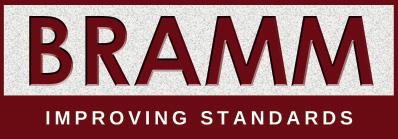68
The ICCM Journal | Autumn 2020 | V88 No. 3
surviving the first wave of COVID-19 Obitus work with over half the UK’s crematoria – with the first wave behind us, Managing Director James Crossland reflects With the first wave of the COVID-19 pandemic now behind us and funeral numbers thankfully a little lower than we’d expect for this time of year, many of us have a little breathing space. After an incredibly tough few months for everyone working in bereavement, including the team at Obitus, this gives us a chance to get some rest, prepare for the forecast “second wave” and winter, and also reflect on what went well, and what we’d do differently next time.
Some technical challenges… This huge increase in webcasting demand put enormous pressure on our systems, way beyond what they were originally designed for. Our technical team worked hard, doing a brilliant job of anticipating most things before they impacted any services. We did have a couple of website issues during April, simply due to sheer volume. We know how important webcasting became for families and the impact any issues had on them.
What went right? Overall, I remain so proud of our team for everything we achieved. At the height of the pandemic we had over 180,000 people each week watching live webcasts, a 60% increase in average music requests per crematorium, and about 300 extra phone calls each day. Before the pandemic the majority of our communications were with other professional bereavement users (crematoria, funeral directors and officiants), but within weeks of the lockdown starting over 95% of the people using our website, emailing or calling us were members of the public watching webcasts.
Importantly, the design of our system meant everything was still recorded, so we could apologise to the small number of families involved and get the recordings back online quickly for families to watch again.
In the middle of that whole challenge for our operational team, our install team helped 33 crematoria across the UK who decided to start working with Obitus – some choosing a specialist AV provider for the first time. With so much happening and things changing so fast, we also knew proactive communication was going to be so important. Throughout the pandemic, I think we did a good job of maintaining regular, open and honest communications with all our stakeholders. We’ve definitely not been flawless, and we’re always conscious that every issue, no matter how small, affects a family in some way. However, we’ve managed to handle the vast majority of this increase very well, and we’ve received an overwhelming amount of praise and gratitude from so many people across the bereavement sector. A webcasting transformation In normal times, music and visual tributes are our core services, with webcasting being a minor optional extra to allow a few family and friends who live across the world to watch a loved-one’s service. Webcasting was never meant to replace being part of the congregation, yet during the peak of COVID-19, for many it was their only option. This meant we saw an enormous increase in not only the number of services we webcast, but also in the number of people watching each service. At peak times, we had over 350 times more people per day watching funerals via our live webcasting system than before COVID-19.
Most importantly, once we identified the cause of the issue, our technical team worked around the clock to improve our systems to handle the higher demand. That improved resilience meant we ran a virtually flawless webcasting service from the end of April onwards. Before these issues, our website had worked almost perfectly for years, and we’re determined to maintain that fantastic record going forward. Some localised challenges… What was an acceptable internet connection before the pandemic suddenly looked pretty poor once webcasting demand ramped up. The internet connection at the crematoria controls not only the quality of the live webcast, but the speed with which we can get the recordings back online. When demand was low this didn’t matter so much, but with some crematoria having backto-back funerals all day long, all of them recorded, and a slow internet connection, there simply wasn’t enough time to get all the recordings back overnight before the next day started. With so much changing so fast, it was sometimes difficult to keep up and to realise the impact of this at some crematoria and warn crematoria and funeral directors. It’s a great strength of our team that they’re problem-solvers, and they work around issues to deliver the best service they can. But this was also a weakness because they masked a problem which was beyond our control. This meant that our team were sometimes dealing with the emotional call from family members when the real cause of problem was out of our control. Again, this is something we’ve learned from and we’ve now made all those affected crematoria aware of this challenge and we are supporting them to better prepare for the future. Recruiting more quickly A mistake I made was being too slow to increase the size















